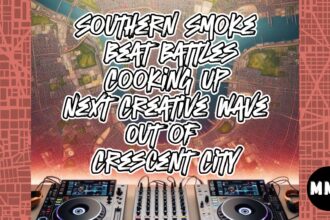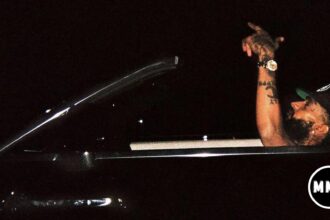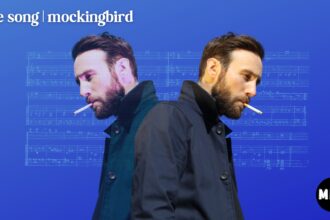As a pastor, I have stood, for decades, in front of congregants in their pews while we sang together countless hymns from the Hymnal as well as contemporary songs that seemed to have a special place in the worship service—I once taught my entire congregation “Fix You” by Coldplay, and we subsequently sang it many times in church.
To comply with copyright laws, every church I have served would have “CCLI” appear as a line item in the annual budget, with $300 next to those initials. CCLI stands for “Church Copyright License International”—after a church has paid its annual licensing fees, the congregation is welcome to sing copyrighted music during worship services.
As a pastor, I am always careful that the CCLI fee is paid each year so we can stand and sing “Brave,” “Blowing in the Wind,” and “Everything Possible”—all of which we sang in church—in compliance with the law. The Church Copyright License fee is a way to honor the protection that copyrighted music enjoys and to fairly compensate those who wrote the songs.
But what happens when songs sung in a public setting have no known author?
What happens when beloved songs sung over and over in houses of words were written down many years after they were composed, and the authors’ names are lost to history? What happens when these songs cannot be traced to the author, so payment can be made for the use of the music?
This is exactly what has happened through the years with African American Spirituals. Unlike other hymns and worship music, African American Spirituals—sometimes called “Black Liturgical Music”—were not published until after the names of their creators were long forgotten, if they were ever precisely known.
As an art form, Spirituals are the unacknowledged intellectual property of enslaved Africans in America. The enslaved people who first gave voice to the Spirituals may not be known by name, but their songs are well known, and these songs are sung weekly in churches across America: “This Little Light of Mine,” “Swing Low, Sweet Chariot,” “Every Time I Feel the Spirit,” “Nobody Knows the Trouble I’ve Seen,” “Wade in the Water,” and “Go Down Moses,” to name just a few.
Sheet Music Plus, one of the many music distributing companies in America, lists 33,000 different arrangements of African American Spirituals—and there is no system of compensation for any one of those arrangements.
Thanks to a growing Reparations Movement gaining momentum in this country today, many people are asking: what is owed to Black musicians today to compensate for the reality that countless groups have sung thousands of Spirituals without ever paying copyright fees or making recompense in any way? What is owed today? How can we make reparations for this injustice?
In their book, From Here to Equality: Reparations for Black Americans in the Twenty-First Century—which has become the Bible for the Reparations Movement in this country—William A. Darity Jr. and A. Kirsten Mullen define reparations as, “…a program of acknowledgment, redress, and closure for a grievous injustice.”
Darity and Mullen continue, “Where African Americans are concerned, the grievous injustices that make the case for reparations include slavery, legal segregation (Jim Crow), and ongoing discrimination and stigmatization. Acknowledgment, redress, and closure are components of any effective reparations project.”
Recognizing that an injustice has occurred for centuries as Spirituals have been sung with no compensation to the people who wrote them, and understanding that reparations involve the three specific components of acknowledgment, redress, and closure, a predominately white church in eastern Massachusetts has decided to pay “royalties” in a creative new way for singing Spirituals not covered by the Church Copyright License.
On October 31, 2021, the United Parish in Brookline announced that they were launching “The Negro Spiritual Royalties Project,” a new racial justice initiative “centered on the musical legacy of enslaved African Americans.”
“We will begin the practice of collecting “royalties” for the African American, or Negro Spirituals we sing in worship,” their announcement of the initiative reads. According to the church’s published materials, “Whenever we sing Spirituals at the United Parish, we will collect an offering that will support the development of young Black musicians. For the next two years at a minimum, we have chosen Hamilton-Garrett Music and Arts in Dorchester, as the recipient of the royalties collected.”
The church’s materials go on to say,
“Enslaved African and African Americans left behind a legacy of breathtakingly beautiful music. They soothe, inspire, break down walls, protest indignities, preach the gospel, show us how to pray, and lead us in the path of righteousness. Please bring a contribution to put in the offering plate during our worship service so that we can start on this musical journey toward racial justice and healing together.”
The Royalties Project, started by the United Parish in Brookline, has inspired other houses of worship to create their own initiatives to offer reparations for music that has thus far been uncompensated.
One such project is being led by Jewish leaders up and down the Connecticut River Valley in Western Massachusetts. These faith leaders from numerous synagogues have joined together and launched a new initiative of their own, called “Let My People Go: Passover Song Acknowledgment Project.”
In their working documents currently being written and reviewed, the creators of this project state, “Since the 1940s, Jewish families in the United States have been singing Spirituals at their Seders, especially ‘Go Down, Moses.’ The song ‘Go Down, Moses’ is one of the best-known Spirituals.” They continue,
“The message of this song was so clear that some slaveholders forbade its singing on their plantations. Its great popularity and widespread use not only demonstrate the inspiration enslaved people received from the Bible and their identification with the Israelites, but show that freedom for the enslaved people was a physical reality in this world, and not merely an otherworldly aspiration.”
The Jewish leaders organizing the “Let My People Go” project want to acknowledge those who created these cultural treasures, the Spirituals, and offer “tzedakah,” a financial gift, to support the African American descendants of those once enslaved.
Like the royalties project launched by a Christian church in eastern Massachusetts, the “Let My People Go” project taking shape in Western Mass. will inevitably inspire more houses of worship to create reparation payment projects to compensate for singing Spirituals in worship services.
The Reparations Movement in this country needs every strata of our society involved, and we need initiatives and projects—both small and large—to be included.
As I reflect on the paying of “royalties” by United Parish in Brookline and the synagogues in Western Massachusetts, I think back on the decades that I led predominately white churches, sang Spirituals in our services, and did not think about how our CCLI licensure did not cover the songs we were singing. We were paying no royalties, making no recompense, and not considering reparations.
Since 2017, I have been serving on the Ministerial Team of a predominately African American Church in Springfield, MA, and Spirituals are sung weekly throughout the year. My current church will not be paying reparations to sing these songs because the congregation is singing songs composed by their own ancestors, foremothers, and forefathers.
I am so aware now, as I stand, sing, and sway, that I am blessed to be singing these remarkable songs surrounded by powerful people who carry these tunes, words, emotions, and messages in their very DNA.
About the Spirituals, Frederick Douglas once wrote:
When on their way, the slaves would make the dense old woods, for miles around, reverberate with their wild songs, revealing at once the highest joy and the deepest sadness. They would compose and sing as they went along, consulting neither time nor tune…I have sometimes thought that the mere hearing of those songs would do more to impress some minds with the horrible character of slavery, than the reading of whole volumes of philosophy on the subject could do.
At the close of their book, Darity and Mullen write, “We seek a new tomorrow that will enable the nation to realize the long-unfilled dreams of the freedmen. Reparations for Black America, finally, will open the door to that new tomorrow. At last, reparations will move America from here to equality.”










This is a fabulous project and First Pres in Durham will do this.
Also, do you know the book on Reparations written by William Darity?
https://uncpress.org/book/9781469654973/from-here-to-equality/
Our church had him come for a 6 week study of the book. Also, do you know who Macky Alston is? He is a child of First Pres and just came for a weekend lecture on reparations–he is a Sundance award-winning documentary film maker–lovely guy: https://mackyalston.com/family-name/
LOVE
so good. I’m so glad that this conversation is finally building; thank you for carrying that further, Reverend Ayvazian, in sharing these resources and thoughts.
Amherst Area Gospel Choir stands ready in any capacity (I assume as I know us well, just not our official spokes person) we are able – individually AND collectively !